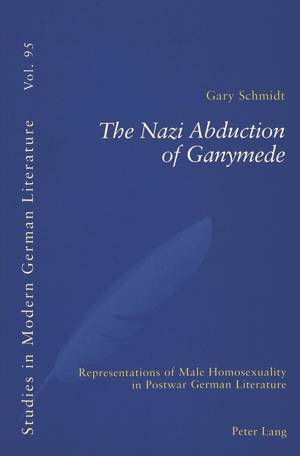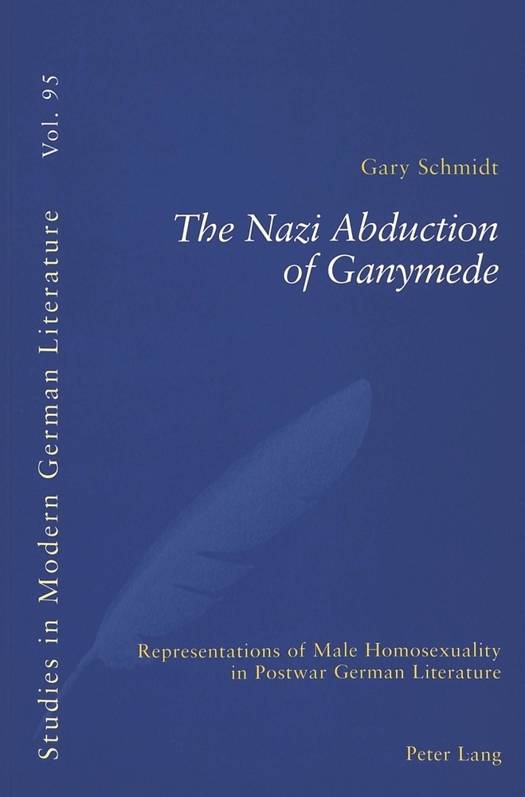
- Afhalen na 1 uur in een winkel met voorraad
- Gratis thuislevering in België vanaf € 30
- Ruim aanbod met 7 miljoen producten
- Afhalen na 1 uur in een winkel met voorraad
- Gratis thuislevering in België vanaf € 30
- Ruim aanbod met 7 miljoen producten
Zoeken
The Nazi Abduction of Ganymede
Representations of Male Homosexuality in Postwar German Literature
Gary Schmidt
€ 102,45
+ 204 punten
Omschrijving
The male homosexual appears in many guises in postwar West German literature: whether he is a sexually predatory soldier, corrupt teacher, decadent artist, purveyor of kitsch, or powerful industrialist, he appears almost always as an insider of the social and political system. Writers such as Heinrich Böll, Wolfgang Koeppen and Alfred Andersch utilized images of homosexuality in order to examine the Nazi past and to critique the Federal Republic of Germany. Their literary depictions are informed by discourses that circulated in the early twentieth century, including the scientism of Magnus Hirschfeld, the masculinism of the German youth movement and the Gemeinschaft der Eigenen, and the literary irony of Thomas Mann. Pre-Nazi images of homosexuality reappear in postwar West German literature in a new sociohistorical context, in which the meaning of the Nazi past and its relationship to the new Federal Republic is debated on many levels. The Nazi Abduction of Ganymede traces the development of a postwar West German literary tradition that participated in parallel developments in philosophy, psychoanalysis, and popular culture, all of which continued to find new ways to link homosexuality with fascism.
Specificaties
Betrokkenen
- Auteur(s):
- Uitgeverij:
Inhoud
- Aantal bladzijden:
- 314
- Taal:
- Engels
- Reeks:
- Reeksnummer:
- nr. 95
Eigenschappen
- Productcode (EAN):
- 9783906769608
- Verschijningsdatum:
- 27/05/2003
- Uitvoering:
- Paperback
- Formaat:
- Trade paperback (VS)
- Afmetingen:
- 150 mm x 220 mm
- Gewicht:
- 439 g

Alleen bij Standaard Boekhandel
+ 204 punten op je klantenkaart van Standaard Boekhandel
Beoordelingen
We publiceren alleen reviews die voldoen aan de voorwaarden voor reviews. Bekijk onze voorwaarden voor reviews.











